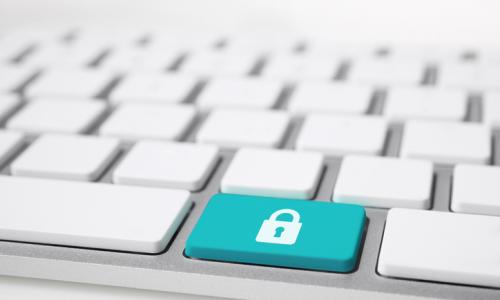Distance Learning for ELLs: Privacy Considerations

Learn more about student privacy concerns as schools shift to online instruction, as well as best practices districts can take to protect student privacy, particularly for ELLs and immigrant students.
Note: This article is part of our guide on distance learning for ELLs, which includes information about planning instruction, offline learning, privacy considerations, family partnerships, and more.
With so many students now at home, many schools are scrambling to provide the best possible education for their students. It's obviously critical for students to continue to progress, but at the same time, schools should be mindful of the privacy issues raised by some online platforms.
Online learning and student privacy
The use of any online platform or software raises significant privacy concerns for all students that every school should consider. The privacy concerns may be particularly complex for families of English learners and immigrant students. At the same time, families who are using Internet and Wi-Fi at home for the first time may need additional information about how to protect their privacy.
For example, Zoom's privacy practices are coming under much more scrutiny as usage increases on a global scale. You can read more about these concerns from The Washington Post and the American Civil Liberties Union, as well as coverage of recent incidents in Massachusetts and on college campuses in which hackers interrupted online Zoom classes with offensive content.
Immigration
Immigrants with undocumented status or living in mixed status households may have additional concerns about online security. The National Education Policy Center notes the following in their April 2020 brief:
Students from high-risk populations (such as undocumented families, foster youth, or survivors of domestic violence) may face immediate threats to their safety as a result of videos, images, or other information about them shared online. All students face longer-term threats, as education software collects information about them, both with and without their knowledge. Some of this information, including educational records transferred from a child’s school or a video that includes a child’s name, is explicitly personally identifiable.
Learn more the following:
- Undocumented immigrants' privacy at risk online, on phones (University of Michigan)
- Federal Agencies Track Immigrants at the Border Using Purchased Cell Phone Data (Harvard Law School)
Note that undocumented immigrants will also be unable to access many of the supports included in the recent federal stimulus bill to address COVID-19.
For additional information, see the following from our guide on how schools can support undocumented students:
What districts can do
We've gathered some resources here about privacy that might be helpful to teachers, schools, and district staff. We have not independently reviewed the privacy policies of Google, Zoom, or other prominent software providers, but we hope these resources will be helpful in enabling schools to carefully weigh these important privacy concerns as they determine which online tools, if any, that they will use with their students.
For example, in order to protect privacy, some districts and states:
- prohibit the sharing of student images or videos, but teachers can share videos or podcasts of themselves
- have strict guidelines about which platforms are approved or how to add additional levels of security among the platforms for maximum student protection
- discourage the use of apps that families have to download at home.
School and district leaders, working in collaboration with the district's IT and legal departments, are in the best position to create student privacy policies based on state guidelines and provide guidance to educators and families, as well as to help families understand their options regarding distance learning. Any updates for families or family consent forms should be written in plain language and made available in families' home languages.
Updates:
- Student Privacy Resources: These student privacy resources compiled by the AFT include numerous documents for educators.
- Children's Data Privacy During COVID-19 Closures: 10 Questions to Ask: This document from the National Education Policy Centers outlines questions that districts and families can ask about students' data privacy.
- Those "Free" Remote Learning Apps Have a High Cost: Your Student’s Privacy (ACLU)
Related Resources
Schools and technology
- Protecting Student Privacy While Using Online Educational Services: Requirements and Best Practices (U.S. Department of Education)
- The Educator's Guide to Student Data Privacy (Connect Safely)
- Common Sense Privacy Program: Ratings by App/Software (Common Sense Media)
- Advice to Parents on Maximizing Privacy & Minimizing Screen Time While Your Child's School Is Closed (Parent Coalition for Student Privacy)
- Fact Sheet: NYSUT's "Continuity of Learning" Guidance for Educators During the COVID-19 Pandemic (New York State United Teachers)
- Schoology, Google Hangouts, and Zoom, Oh My! FERPA and Virtual Learning (JDSupra)
- Douglas County, CO: School District Online Safety Website, Resources, and State Policies
Data tracking
- What is online tracking? (Federal Trade Commission)
- Location Tracking (Me and My Shadow)
- Study: Google's tracking is hard to escape (CNN)
News and updates
We will share new resources related to this topic as they become available.






